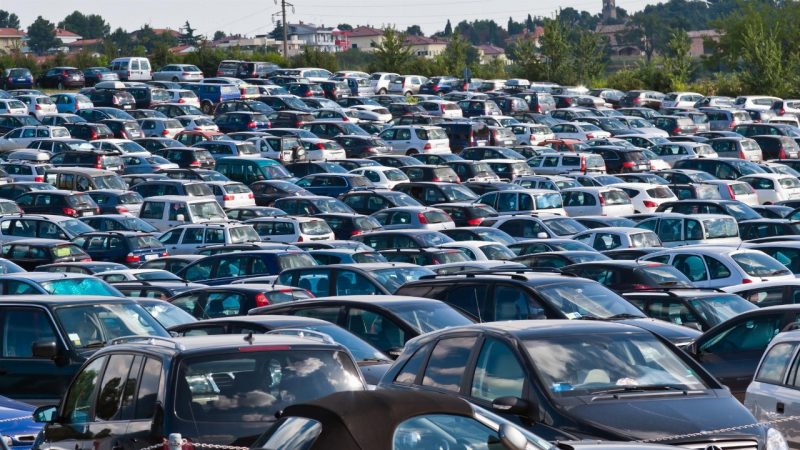- Of all the industries ripe for a sweeping overhaul, the car parking sector is certainly up there
- The number of registered vehicles in Australia has doubled over the last 20 years, but the availability of public car parks has failed to mirror the increase
- Enter PARKD — the construction technology company that’s developed a concrete modular, multi-storey car park structure known as the PARKD Car Park System
- The system features only three primary concrete elements, all of which are prefabricated off-site and offer significantly faster build times for less money
- It can also be designed with a range of add-ons, including electric vehicle charging, rooftop spaces for markets, and recreation or childcare services
- Australia is the most expensive country in the world in terms of car parking prices, and one of the company’s major goals for 2021 is to establish and operate its own low-cost car park
- Shares in PARKD are currently trading at 6.5 cents
Of all the industries ripe for a sweeping overhaul, the car parking sector is certainly up there. Every day, thousands — perhaps millions — of us leave our vehicles at shopping centres, office buildings and public transport hubs in much the same way that we have for decades. Cars have developed enormously in that time, but our methods of short-term vehicular storage have demonstrated a unique ability to resist any major degree of change.
It’s even more perplexing given that the number of registered vehicles in Australia has doubled over the last twenty years. Add to that Australia’s ever-growing population (an additional person every four minutes and 47 seconds, to be exact), and it would seem that a parking-related crisis is not too far away.
Federal and state governments have been pouring massive amounts of time, energy and money into improving the public transport sector. But, for a lot of people, the hassle of catching buses and trains falls immeasurably short of the convenience offered by cars.
“Most people would be happy to use public transport if it went from near where they are to near where they wanted to go, quickly and regularly,” said former Prime Minister Tony Abbott in 2009.
Likewise, Peter Martinovich, Executive Director of Infrastructure Planning and Land Services at Western Australia’s Public Transport Authority, said the convenience of the motor car has historically been absolutely paramount.
“If we’re building new public transport, we must design it to compete with the motor car and be better. Otherwise, don’t bother building it at all,” he added.
In NSW, the government’s Parking Space Levy (PSL) aims to reduce congestion in key business districts across Sydney and bring more people to public transport by funding roughly $100 million worth of improvements to essential infrastructure, including commuter car parks and interchanges.
In May 2019, the Victorian Government also unveiled a Regional Car Parks Fund under which $30 million would be invested to deliver new car spaces in Ballarat and the Latrobe Valley.
The coffers are clearly full and, for an entity with the right offering, there exists an undeniably significant opportunity.
Enter PARKD — the Perth-based construction technology company that’s developed a concrete modular, multi-storey car park structure known as the PARKD Car Park System that minimises both disruption and expenses.
Touted as a solution to the parking shortages of inner-city Australia, the system features only three primary concrete elements, all of which are prefabricated off-site and offer significantly faster build times for less money.
As a result, the preferred solution to the burgeoning parking crisis — expanding outwards — is replaced by a new, much more viable ability to build upwards, saving increasingly precious space in the process.
Central to the solution offered by PARKD is its ultra-rapid build times and future flexibility — that levels can be added or removed in response to changing levels of demand. In fact, the PARKD Car Park System can be disassembled entirely and erected elsewhere in a matter of days.
“Build for now and flex for the future” is something they believe is more important now than ever before. According to PARKD’s Managing Director Peter McUtchen, “all of our current designs include an element of reuse or repurpose because our clients believe the future for parking demand is uncertain.”
Not only that, but the system can be designed with a range of add-ons to enhance community amenities, including electric vehicle charging, rooftop spaces for markets, recreation or childcare services, drone delivery facilities, and ride share zones — even infrastructure to harvest rain and solar energy.
Of course, there’s also a financial component. According to Parkopedia’s 2019 Global Parking Index, the average price per day for off-street parking in Australia amounted to $43.98 — a 6.6 per cent increase from 2017. This makes Australia, and particularly Brisbane, the most expensive country when it comes to parking, well ahead of Switzerland and Hong Kong, which come in at second and third.
While CBD parking is the golden goose for many landowners and operators, there are even more enticing opportunities in the health and university sectors where there is a growing demand for the leasing of car parks for periods of up to 40 years. As a result, there’s a major opportunity for PARKD to cash in on what could be considered a looming ‘parking boom’, and one of the company’s major goals for 2021 is to establish and operate their own car park through “build, own, operate and transfer” arrangements that could lead to dividend outcomes for its investors.
In the age of bitcoin and artificial intelligence, parking might seem an odd investment choice. But, with the COVID-driven market turbulence showing signs of abatement, it’s the stocks poised to do well with a reopening economy that have investors excited.
Shares in PARKD are currently trading at 6.5 cents.

